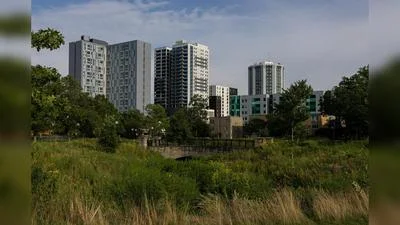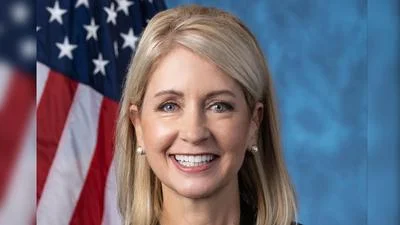Rep. Dan Caulkins would have preferred opening schools up and extending the school year into June. | Stock Photo
Rep. Dan Caulkins would have preferred opening schools up and extending the school year into June. | Stock Photo
Rep. Dan Caulkins, R-Decatur, said he is disappointed that Illinois will not finish its school year and worries that a Chicago-centric view clouds the governor’s decision-making process.
“I think having closed the schools last month was probably the best decision that the governor could make based on the information he had,” Caulkins told the Chambana Sun. “Schools are normally out in May, so do we open the schools back up for two or three weeks? I think that’s the question, or do we extend the school year into June and July.”
Gov. J.B. Pritzker ordered Illinois schools close their in-school instruction for the remainder of the school year. He had already instructed schools to utilize remote learning.
“I’ve said time and time again, our decisions are hard ones, but they follow the science — and the science says our students can’t go back to their normal routine,” Pritzker posted on his Facebook page. “Therefore, I am suspending in-person learning in schools for the remainder of the 2019-2020 school year.
Caulkins expressed disappointment that extending the school year was not considered.
Student athletes who compete for scholarships lost opportunities when schools were closed. Caulkins said he imagines that will have a devastating effect on their ability to earn scholarships.
He would have preferred that students go back to school in May and to extend school for a full year of instruction.
“I think the big problem that we have in our state, all of our state, is being judged and managed by what’s going on in Chicago and the collar counties,” he said. “Only 8 percent of all the diagnoses have occurred outside of that area.”
Decisions are made on a one-size-fits-all basis. “What’s good for Chicago is what’s good for all of Illinois,” he said.
“The governor needs to be more considerate of downstate Illinois, our circumstances and our needs, and how we can best manage our needs. He’s from Chicago, lives in Chicago, stays in Chicago,” Caulkins said.
He said he spoke to the governor and tried to impress upon him that downstate is not in the same circumstances as Chicago.
He shared the numbers causing him to want an end to the lockdowns and closures.
“I’ve got numbers for you: Over 650,000 unemployed citizens in Illinois as a result of this. That’s 650,000 out of work since March. Ninety-two percent of coronavirus cases are in Cook County and the suburbs,” he said.
Hospitals in the state lost $1.4 billion in revenue in March due to canceled surgeries, according to the Illinois Hospital Association. Caulkins said the best projections show they will lose at least that much again in April.
A University of Illinois Springfield think tank estimates that if the lockdown continues with shelter-in-place executive orders, next year’s state budget will have a $7.5 billion drop in income. The current state budget is $45 billion.
“We need to find a way to get back and get up and going and do it quickly. If we do this regionally, it will work,” Caulkins said.
It appears to Caulkins that governors in California, New York, Michigan, Illinois and a few other states are jockeying for some political promotion.
He said, “I think that they have political aspirations beyond being a governor. And that I fear clouds some of this decision making."
Caulkins believes when the lockdown ends, when Illinois residents no longer must shelter in place, things won’t be the same.
“We are not going back to February 2020. We’ve learned a lot. We’ve learned personal hygiene, for instance. We’ve learned that maybe we don’t want to stand 10 people deep at a line at a cash register. We’ve learned a lot and those lessons will carry over,” Caulkins said.
“I think people are going to be very aware of this experience. And it’s going to change our country, it’s going to change our world,” he said.
COVID-19 will change the way we work, educate and interact in open society. And if the population cannot return to this new normal soon, Caulkins said it will have a dramatic effect on politics. A lot of change is coming, and some will be good.
Positive changes already are happening. Caulkins related how the changes help at the assisted living facility he and his brother own.
In a normal year, they’ll lose two or three residents to the flu. When a visitor brings flu into the building, one elderly resident gets sick and it spreads to the others. Not this year for the Caulkins’ residents.
“We have not lost one person this year to the flu because of a very aggressive lockdown and protocols. We’ve had two people tested, one employee and one resident, both negative,” he said. “People will get sick, but not sick enough to go to the hospital.”
Caulkins thinks as a society we have learned, as a country we’ve learned. The world has learned.






 Alerts Sign-up
Alerts Sign-up